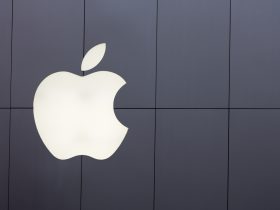Before the move was at least delayed by yesterday’s decision by US district judge Carl Nichols to grant the preliminary injunction sought by TikTok’s owner, ByteDance, allowing the app to remain available in US app stores, President Trump seemed to be getting his way. He has labelled the Chinese-owned viral video clip app a threat to national security and insisted ByteDance sell its U.S. operations to an American company or be banned from the country.
Yesterday’s decision only temporarily halts the ban on the TikTok app being downloadable from Google’s Play and Apple’s App Store (current users can still use the apps until the November 12th deadline). The Washington DC court’s temporary delay may well prove just that, with President Trump seemingly determined to ratchet up the U.S.-China trade war, with tech exports, the WeChat ‘super app’, is currently in the same boat as TikTok facing a U.S. ban, now the big target.
TikTok’s lawyers called the ban “arbitrary and capricious”. Trump might well argue that his approach is no different to restrictions the Chinese authorities have imposed on U.S. social media and other technology companies in their domestic market. Google, Facebook, Twitter, Instagram etc., are all either banned on the Chinese mainland or gave up trying to capture market share in the huge country as a result of heavy restrictions they felt would either compromise their competitiveness, integrity, or both.
Interestingly, the focus of Trump’s argument for why he issued an executive order demanding TikTok’s U.S. operations be sold into American ownership or be effectively shut down was ‘national security’. He said the ‘black box’ algorithm the social media’s success is credited to could hold personal data on U.S. citizens that could potentially be used to blackmail them and otherwise prove a national security threat.
The argument was based on the fact that Chinese laws require technology companies to hand data over to authorities if requested. Owners ByteDance insist they would not do so, even if requested and that the law didn’t have jurisdiction over the data it holds on U.S. users, which is stored between data centres in the USA and Singapore.
Few industry analysts take seriously the national security argument, with Trump’s move widely considered tit-for-tat in the ongoing trade war between the two economic superpowers. Chinese telecoms hardware giants Huawei and ZTE had previously been targeted.
TikTok is the first Chinese-owned social media to become widely popular in the USA, where it has as many as 100 million active monthly users. Banning it on data privacy concerns seems a little strange considering how big a point of contention the user data held by U.S. social media and tech companies is. There’s an argument Trump could simply have stated the move was reciprocal to Chinese restrictions on U.S. social media companies, and that could have been largely accepted as ‘fair enough’.
But that’s a side point. Beijing has clearly been angered by the action and responded that the United States would“bear the consequences” of its own “bitter fruit.”
Foreign ministry spokesman Wang Wenbin said,
“The U.S. is using national security as an excuse and using state power to oppress non-American businesses. That’s just a hegemonic practice.”
Again, setting aside the fact that there is heavy irony in China complaining about its social media companies facing restrictions abroad, it seems certain that Beijing will retaliate. In what form is that likely to be? And should investors in big U.S. technology companies be concerned how it might impact their earnings, and share prices, in the months and years ahead?
How Might Beijing Retaliate Against U.S. TikTok Ban? Which Big Tech Companies Could Be Impacted and How?
Big U.S. social media and online companies such as Facebook, Twitter, LinkedIn(Microsoft) etc., don’t have a great deal to directly lose from Chinese retaliation because they are not present on the Chinese mainland anyway as a result of its firewall and restrictions. But tit-for-tat measures could hit other tech companies.
Apple is the most obvious, with iPhone and other hardware sales in Greater China accounting for a little under 15% of its total revenues over the first quarter of 2020. Ethnic Chinese iPhone owners elsewhere around the world would also be discouraged from using the smartphones if they weren’t able to use WeChat and TikTok on them.
Apple also does a lot of manufacturing in China, though it could be argued that while the disruption of having to move would be unwelcome, the Chinese economy would lose more by kicking the company out. Apple is anyway diversifying its production facilities out of China as a precaution against the fall-out from the trade war.
Non-tech American companies operating in China such as McDonalds, Starbucks, KFC and Walmart have more to lose. They rely on the WeChat app for a large percentage of their payment transactions. If that were to be compromised in retaliation, they would lose business, though it’s hard to predict how much.
But a Beijing backlash could also hurt U.S. social media companies hard, despite the fact they don’t operate in China. Facebook, for example, sells over $5 billion worth of ad space to Chinese companies and government agencies. That makes China Facebook’s second largest ad revenue market after the USA, where it generates $24.1 billion.
China accounts for just 1.8% of Microsoft’s global revenue. Microsoft president Brad Smith recently commented on how only Apple, and to a lesser extent microchip makers Qualcomm and Intel have made serious inroads into the Chinese market, saying:
“There have been times when American tech companies, Microsoft included, have failed to appreciate that Chinese consumers may simply want something different from consumers in the United States and other places.”
Rampant piracy of its products in China has also not helped.
Amazon is also unlikely to be particularly worried. The company pulled out of China, though products can still be shipped into the country from abroad. And China was never a big market for Amazon, due to tough local competition, not least in the shape of Alibaba, often referred to as the ‘Chinese Amazon’. AWS, Amazon’s quickly growing cloud computing platform, which is also increasingly important to the group overall, does have a joint venture in China, which could become a target of retaliatory measures.
But over 40% of Amazon sellers are reportedly based in China, which would again mean Beijing would be shooting itself in the foot by taking any action against the company. The only thing it could really do would be to stop Chinese citizens trading with it.
Google has made a couple of aborted attempts to enter the Chinese market, with the most recent attempt failing earlier this year after the search engine giant said it could not agree to demands made by the Chinese authorities, which would have influenced what its algorithms showed and how they worked. China’s dominant search engine is Baidu, which has little to know traction outside of the Mandarin and Cantonese speaking world.
Netflix doesn’t operate in China. Neither does Twitter. Uber pulled out of China in 2016 due to a combination of heavy competition from local rivals and suspicions of state interference putting it at a competitive disadvantage.
The reality is, U.S. tech companies make little money in China but bring a lot into it through manufacturing and by selling China-made products. There aren’t a lot of non-tech US companies making much money in China either. On many levels, that’s a genuine issue that Trump has highlighted as a notably one-sided trade relationship.
But it begs the question, how might Beijing retaliate and does big U.S. tech have anything to worry about?
Because China already restricts most U.S. technology and information companies, Beijing’s most likely response will be an asymmetrical one. Which U.S. companies could, then, be targeted? We’ve already mentioned Amazon’s AWS joint venture in the country. Cisco, which has been involved in intellectual property disputes with Huawei, could be collateral damage. The hardware company is already unpopular in China.
Another possible route is more symmetrical retaliation, with China forcing U.S. companies operating in China to sell their assets to a Chinese buyer. However, such a move would have to target companies of a different nature to TikTok, of which there are no U.S. representatives in China anyway.
The U.S. companies with most to lose from a China ban would probably be microchip makers Qualcomm, Broadcom, and Micron Technology. But these semiconductor companies’ chips are essential to China’s tech sector and banning them would arguably hurt Chinese companies more.
China targeting Apple would also hurt one of the jewels in the USA’s tech crown badly, but perhaps too badly, provoking further retaliation. China still relies on U.S. tech more than the other way around. It is hard to think of a Chinese technology company that would lead to a genuine problem for U.S. companies, if no longer able to use its products or services.
But China still relies on the USA and U.S. tech companies for a lot. Microsoft Windows holds 82% of the Chinese OS market. Even in their domestic market, Chinese apps rely on U.S. technology, Android and iOS, for their distribution. China even relies on U.S. proxies, which control the Internet Corporation for Assigned Names and Numbers, or ICANN, the global internet’s log keeper that assigns and matches domain names with IP addresses, for access to the global internet.
China is trying to replace pretty much everything with locally built and controlled alternatives but doing so will still take time. Any retaliation can’t go so far as to provoke a genuinely angered response from the USA.
Will The ‘Splinternet’ Be The End Result Of The USA vs. China Cold Tech War?
Many analysts and market observers believe that the very fact that China finds itself with limited ammunition to hit back at the USA’s TikTok and WeChat ban will accelerate the splitting of the online and digital worlds between East and West.
China is not suddenly aware of how one-sided its tech trade relationship with the USA is, when it comes to genuinely irreplaceable IP. But the TikTok spat has sharpened focus again. China will redouble efforts to attain tech independence. Microprocessor designs and supply chains being brought ‘inhouse’, is a priority. And locally-built and owned alternatives to U.S. tech currently relied on will an even greater priority than previously.
China will then try to wield the powerful economic influence it has and is building up in many parts of the world to position its own companies ahead of U.S. tech and other Western tech. The digital world may start to see borders drawn, with geographies economically and politically closer to the West remaining customers of its technologies and those with closer economic and political ties to China using its companies’ technology products and services.
That would hurt big U.S. tech companies in the long run. Especially if other huge countries, such as India, which also banned TikTok and over 50 more Chinese apps after border clashes in the Himalayas, also start to take measures to protect national tech champions.
Could A Change Of U.S. Administration Lead To A Truce?
With the USA’s presidential elections coming up in November, which many observers believe is not coincidental to the Trump administration’s actions against TikTok and WeChat, China also seems to be biding its time. If Trump is no longer in power by early next year, the feeling may well be that it makes more sense to sit back and wait now, rather than stoking tensions further.
Even if Biden wins the presidential race for the Democrats, how much and how quickly he would be able to roll back many of the new anti-China policies and laws hastily introduced by the Trump administration is under question. His hands will be tied to at least some extent.
The ‘free and open’ internet envisioned just 10 years ago now looks a far more fractured and protectionist digital space. A growing schism between parts of the world that use U.S. technology and others using Chinese alternatives currently looks more likely than a reversal over coming years.
If that will ultimately hurt or help big U.S. tech stocks is a difficult question to answer. But at least in the short term, the reality is the fall-out is likely to be limited.










Leave a Reply